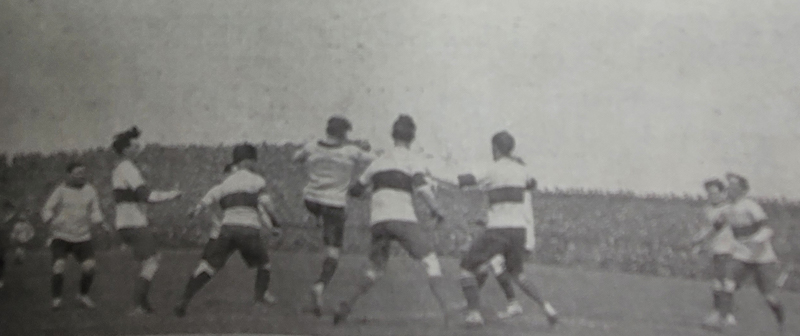GAA decides it’s an “inopportune time” to remove foreign games ban rule
2 April 1923, Dublin - The annual congress of the GAA was yesterday dominated by discussion over the Association’s ban on players of rugby, soccer, hockey and other sports from participation in Gaelic games.
A motion to remove the exclusionary rule was presented by Cork delegates to the Congress, while the President of the GAA, Mr. Dan McCarthy TD, also proposed a motion for its deletion.
The President was one of a number of speakers who advocated an ‘open door’ policy in the belief that gaelic games should stand on their own merits and that the circumstances which justified exclusion in the past no longer maintained. Rather than hinder gaelic games, it was proposed that removal of the rule would actually help them.
This was not a view shared by the Congress which, following a debate that was without heat or acrimony, voted by a margin of 50 votes to 12 to retain the rule. Approximately twenty delegates spoke to the motion.
The argument for retention essentially came down to the view that it was an ‘inopportune time’ and that there will be time to alter the GAA’s constitution when the effects of current disorganisation are behind the Association. And while this argument held sway, the general feeling around Congress was that the rule will be abandoned in the not too distant future.
Footage from the 1921 All-Ireland hurling final which, owing to political disruptions referred to at the GAA Congress, was only placed in March 1923
Other important decision taken at Congress included a commitment to support development in Ulster where gaelic games were weak, with tournaments organised to maintain and equip gaelic grounds in Belfast and across the north-east.
The Irish language is also to be supported by giving preference to native speakers in appointments to all salaried positions, while a commitment to handball development was also given with the possibility raised that a new arrangement be formed with existing handball associations for the promotion of the game.
In terms of finance and organisation, unsettled political conditions and disruptions to transport networks took their toll, especially in Munster and Connaught. In relation to the former, Mr. O’Brien from Co. Clare spoke of games being brought to a ‘standstill ’ for a period last summer and autumn. Barring that, the performance of the Association in Leinster was considered excellent: all championships last year were completed and gaelic games were deemed to be ‘flourishing’ in nine of the province’s twelve counties.
Overall, the Congress was an upbeat affair and an immediate revival in the Association’s general fortunes is expected as soon as normal political conditions return.
[Editor's note: This is an article from Century Ireland, a fortnightly online newspaper, written from the perspective of a journalist 100 years ago, based on news reports of the time.]





















